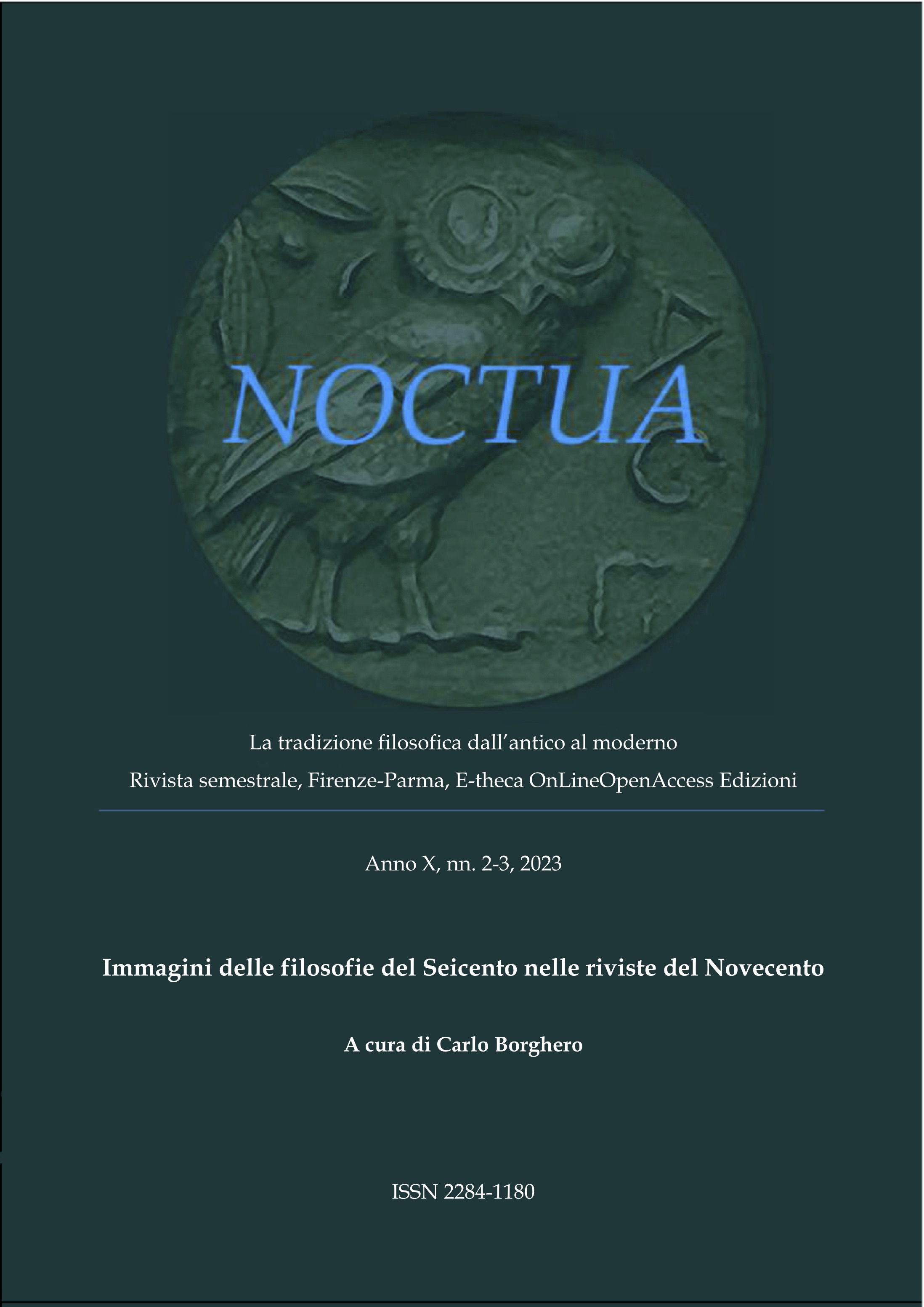La presenza di Descartes in Mind dal 1900 al 1947
DOI:
https://doi.org/10.14640/NoctuaX6Keywords:
Cartesian philosophy, Cartesian scholarship, Cartesian circle, Mind, mind-body problemAbstract
This paper examines how Descartes’ philosophy was presented and discussed in articles and reviews published in Mind from 1900 to 1947, a period in which this most prestigious British philosophical journal was edited by George F. Stout (until 1920) and then by George E. Moore (from 1921 to 1947). The survey deals with various aspects of the reception of Cartesian philosophy in the journal: articles devoted to several topics of Cartesian thought, critical notices and reviews of the secondary literature, discussions of twentieth-century English translations of Cartesian works. In line with the theoretical character of Mind, most of the interpreters discussed Cartesian philosophy with the aim either of checking its internal consistency or of proving how the Cartesian system might be rendered consistent with its own premises. In this respect, all the themes revolving around the problem of the Cartesian circle attracted the attention of commentators, and the intuitionist foundation of Cartesian theory was analyzed. Descartes’ metaphysics and natural philosophy were often evaluated from the perspective of contemporary philosophical debates, while their original historical context was neglected. Of particular relevance were issues like the mind-body problem, discussed at the beginning of the century in relation to developments in psychology, and the question of the existence of the external world, which was examined from various standpoints, metaphysically, epistemologically and from the point of view of linguistic analysis. Interest in Descartes was shown by many authors from major philosophers (such as Ward, Schiller, Taylor, Broad, Ryle) to lesser known scholars whose profiles and contributions are outlined. Through the angle of the Cartesian presence a sketch emerges of the rich and variegated philosophical scene of British culture in the first half of the twentieth century.
Downloads
Published
Issue
Section
License
Noctua pubblica contributi Diamond Open Access secondo i termini della licenza CC BY / Noctua publishes Diamond Open Access contributions under the terms of the CC BY license.






